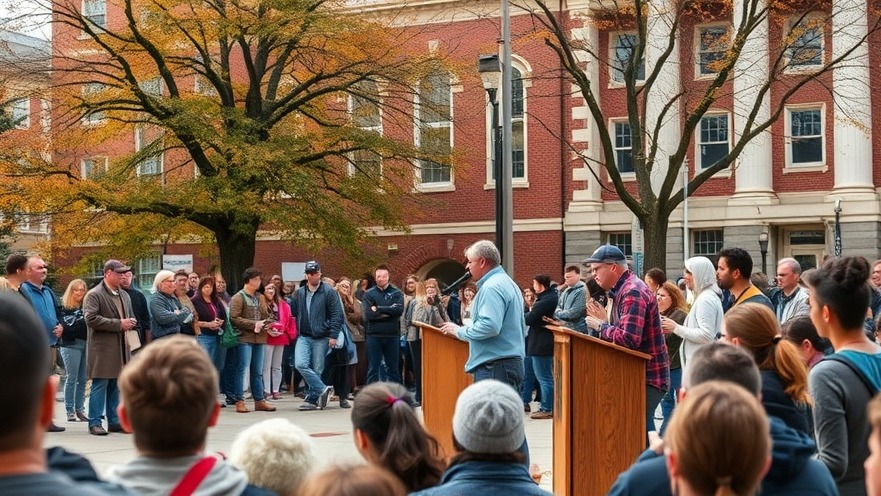
Texas Education's Collision Course: The Impact of Freedom of Speech
In the wake of the tragic shooting of Charlie Kirk, a conservative activist, Texas is witnessing a fierce debate on freedom of speech within its university systems. With the recent formation of committees to scrutinize and address this contentious issue, the matter has become more than just an academic discussion; it has evolved into a social flashpoint affecting the future of education in the Lone Star State.
Context of the Rising Debate: Honor or Act of Censorship?
The committees, named after Kirk, aim to tackle concerns surrounding bias and free speech at the collegiate level. Burrows and Patrick emphasized the necessity for this initiative, citing an alarming rise in public displays that demean Kirk's legacy and question the intentions of educational institutions. Critics argue that this oversight could lead to an environment where educational discourse is stifled, fostering a chilling effect on academic freedom.
Are Universities in Texas Under Fire?
In recent months, political scrutiny on universities has sharpened significantly. The dismissal of faculty members at various Texas universities following controversial statements has raised questions about academic freedom and the protection of educators' rights to free speech. A recent incident involving a confrontation between a student and a professor about gender identity illustrated the volatile mix of education, personal beliefs, and public discourse.
Understanding the Cultural Pulse: What's at Stake?
This situation transitions from an isolated tragedy to a broader examination of the sanctity of both free expression and safe educational spaces. With allegations of celebrated hatred towards Kirk, lawmakers contend that educational spaces must uphold the rights to free speech while simultaneously ensuring a respectful environment for all. The underlying challenge lies in how to balance these conflicting needs without sacrificing one for the other.
Concrete Consequences: The Legislative Focus
With a committee consisting of both Republican and Democratic lawmakers, the endeavor to address free speech on campus is taking a more measured approach. Conversations surrounding bias, as well as instances like those at Texas A&M University, highlight the complexities of navigating a rapidly changing educational environment. Stakeholders will need to embrace an inclusive dialogue that represents diverse viewpoints while cultivating a safe atmosphere for all.
Future Directions: Will Dialogue Override Division?
If the committees are successful, they may pave the way for new policies that define how universities approach discussions about speech freedoms. However, if neglected, could we see institutions falter under an oppressive framework prohibiting certain discussions? As discussions about schools' roles evolve, ongoing scrutiny will remain essential for assessing the impact these legislative shifts have on educational institutions and society at large.
Paving the Way for Constructive Engagement: A Call to Action
As Texans engage in this critical dialogue, it is vital for both lawmakers and educators to embrace constructive discussions that promote mutual understanding. The need for respect and open conversation is paramount. Urging all parties involved to consider the implications of their words and actions may foster a healthier environment for future generations.
 Add Element
Add Element  Add Row
Add Row 



Write A Comment